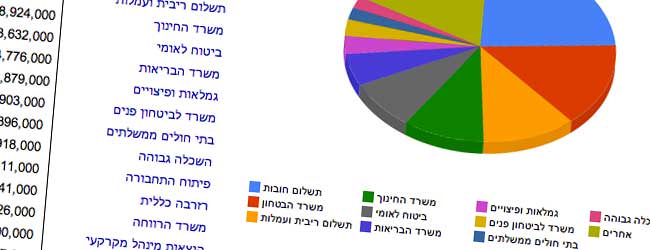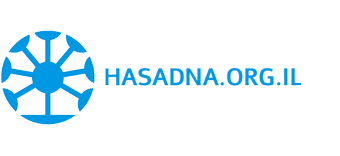
At the end of 2010, after the large Carmel fire, we tried to understand the truth behind the accusations between the Fire and Rescue Services and the Ministry of Finance. The budget was the main issue of contention. The Fire and Rescue Services argued that they had not been allocated the proper amount of money and the Government claimed otherwise. We had hoped that the the claims could be easily verified or refuted, given that the state budget books were publicly accessible online. It had seemed like a simple inquiry, but we were really wrong.
A search on the Finance Ministry website revealed that the budget had been posted in three different places on the site. The first consisted of fifteen excel files, one for each year. In another location, there were enormous text files, some of them describing a single year and others only specific clauses from a single year. The third location was an automatic parliamentary question system that could be used to search and receive a small number of clauses.
Notably, each location presented different numbers for each clause!
After consulting an expert economist, we understood that budgets are divided using a hierarchical order, that each clause has net and gross values (that define the portion of each ministry budget that is conditioned upon external revenue) and that there is significance to the planned values (that are approved by the Knesset), the updated values (following changes during the year through the Finance Committee), and the actual performance (the amount of money really spent).
The sad conclusion was that the planned budget – it was the 2011-2012 budget at the time – was inaccessible online (except for a very general description). With the help of Minister Michael Eitan and his team we received, as a precedent, the detailed planned budget.
We then united all this information in one API accessible database. For the first time ever, all of the budget data starting from 1992 became available online for anyone interested, including all values for a specific clause over the years.
In the second phase, we created a user-friendly website that enables anyone to explore the data. We developed and launched the site in March 2011 with the help of Minister Michael Eitan’s staff who also allowed the site to be part of the Israeli Government Portal under the name: budget.msh.gov.il.
Already, the site has enriched the public discourse on the issue of the budget. The site has been frequented by a variety of institutions, authorities and civil society associations, including the Bank of Israel, the Knesset’s Research and Information Center, and the budget teams of government ministries. And, of course, many citizens visit the site to gain a better understanding of the division of resources in the state.
That it is now possible for the Israeli public to view and investigate state and local budgets is vital for the ability of citizens to inspect governing authorities and for a public sense of involvement in government institutions.
The Workshop is actively developing the next version of the Open Budget site in cooperation with Minister Michael Eitan, Tel-Aviv University, Shatil organization, and the Israeli Internet Association. This improved website will include:
- Enhanced visual imaging
- Better search options
- Social features that will allow discussion and sharing
- Expansion of the database to encompass budgets of local authorities, corporations, government companies and more.
In addition, a separate system is being developed with the objective of enabling researchers and professionals to perform in-depth research and to accumulate insights that exceed the raw data.
